Related Research Articles
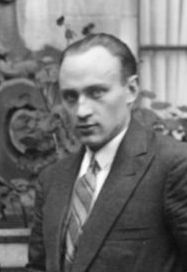
Paul Sacher was a Swiss conductor, patron and billionaire businessman. At the time of his death Sacher was majority shareholder of pharmaceutical company Hoffmann-La Roche and was considered the third richest person in the world with an estimated net worth of US$13 billion.

The University of Basel is a university in Basel, Switzerland. Founded on 4 April 1460, it is Switzerland's oldest university and among the world's oldest surviving universities. The university is traditionally counted among the leading institutions of higher learning in the country.

Niels Kaj Jerne, FRS was a Danish immunologist. He shared the Nobel Prize in Physiology or Medicine in 1984 with Georges J. F. Köhler and César Milstein "for theories concerning the specificity in development and control of the immune system and the discovery of the principle for production of monoclonal antibodies".
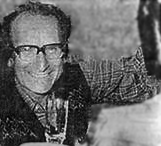
César Milstein, CH, FRS was an Argentine biochemist in the field of antibody research. Milstein shared the Nobel Prize in Physiology or Medicine in 1984 with Niels Kaj Jerne and Georges J. F. Köhler for developing the hybridoma technique for the production of monoclonal antibodies.

Georges Jean Franz Köhler was a German biologist.

Fritz Hoffmann-La Roche, later Fritz Hoffmann-von der Mühll, was a Swiss businessman who founded the pharmaceutical company F. Hoffmann-LaRoche & Co.

Klaus Rajewsky is a German immunologist, renowned for his work on B cells.

Science and technology in Switzerland play an important role in the Swiss economy, which has very few natural resources that are available in the country. The Swiss National Science Foundation, mandated by the Federal government, is the most important institute for promoting scientific research.
John Wilcox Stocker AO is an Australian immunologist and the former Chairman of the Board of the Commonwealth Scientific and Industrial Research Organisation (CSIRO), the national government body for scientific research in Australia. Stocker is a former Chief Scientist of Australia.
Geoffrey W. Hoffmann, is an Australian-Canadian theoretical biologist. Hoffmann was a faculty member in the Department of Physics at the University of British Columbia and the founder of Network Immunology Inc. in Vancouver, Canada. He is best known for symmetric immune network theory.

The Friedrich Miescher Institute for Biomedical Research (FMI) is a biomedical research institute founded in 1970. Based in Basel, Switzerland, the FMI is affiliated with the University of Basel and the Novartis Institutes for BioMedical Research (NIBR). It is named after Friedrich Miescher. As of 2021, the FMI has around 340 collaborators, of which 20 are research group leaders, over 80 are postdoctoral collaborators and over 80 are postgraduate students participating in the FMI International PhD Program. The FMI is directed by Dirk Schübeler.
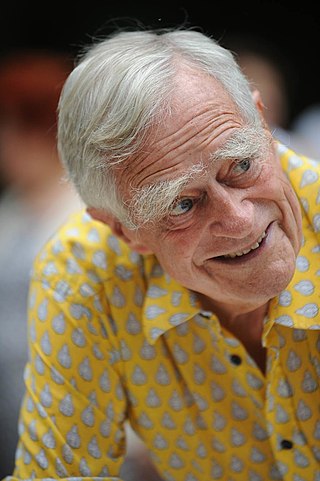
Hans Lukas "Luc" Hoffmann was a Swiss ornithologist, conservationist, and philanthropist. He co-founded the World Wildlife Fund (WWF), helped establish the Ramsar Convention for the protection of wetlands, and set up the Tour du Valat research centre in the Camargue area of France. In 2012, Luc Hoffmann's MAVA Foundation, along with WWF International, established the Luc Hoffmann Institute. He was the author of more than 60 books, mostly ornithological.

The Biozentrum of the University of Basel specializes in basic molecular and biomedical research and teaching. Research includes the areas of cell growth and development, infection biology, neurobiology, structural biology and biophysics, and computational and systems biology. With 550 employees, the Biozentrum is the largest department at the University of Basel's Faculty of Science. It is home to 32 research groups with scientists from more than 40 nations.

Erich Nigg is a Swiss cell biologist.

Silvia Arber is a Swiss neurobiologist. She teaches and researches at both the Biozentrum of the University of Basel and the Friedrich Miescher Institute for Biomedical Research in Basel Switzerland.
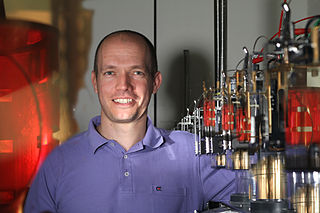
Christoph Handschin is a Swiss cell biologist at the Biozentrum University of Basel.
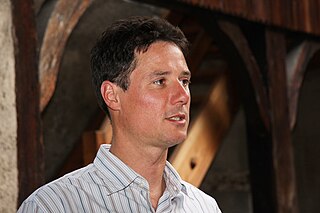
Jean Pieters is a Dutch biochemist and Professor at the Biozentrum of the University of Basel, Switzerland.
Susan M. Gasser is a Swiss molecular biologist. From 2004 - 2019 she was the Director of the Friedrich Miescher Institute for Biomedical Research in Basel, Switzerland, where she also led a research group from 2004 until 2021. She was in parallel Professor of molecular biology at the University of Basel until April 2021. Since January 2021, Susan Gasser is Director of the ISREC Foundation, which supports translational cancer research. She is also Professor invité at the University of Lausanne in the Department of Fundamental Microbiology. She is an expert in quantitative biology and studies epigenetic inheritance and genome stability. Recipient of multiple swiss and European awards, she was named member of the US Academy of Sciences in 2022.
Emanuel Hoffmann was a Swiss jurist and art collector and the son of Fritz Hoffmann-La Roche, a founder of the pharmaceutical company Hoffmann-La Roche

Maja Sacher was a Swiss art collector and philanthropist.
References
- ↑ Lefkovitz, Ivan (2017). History of the Basel Institute of Immunology (1st ed.). Karger. doi:10.1159/isbn.978-3-318-05935-9. ISBN 978-3-318-05934-2.
- ↑ Paul Sacher Foundation Website Archived November 24, 2006, at the Wayback Machine
- ↑ CV Fritz Melchers
- 1 2 Closing of Basel institute scatters immunologists. Science 293, 238-239, 2001
- ↑ Friedrich Miescher Institute Website
- ↑ Biozentrum Website
- 1 2 [30 Years Basel Institute for Immunology, (History, Milestones, Press Articles, Annual Reports, Publications, List of Institute Members), Souvenir CD/DVD 2001]
- ↑ [Publications & Annual Reports 1972-1999]
- ↑ Dembic, Zlatko (2011). "My Basel Institute for Immunology, My BII, My Bias". Scandinavian Journal of Immunology. 73 (6): 505–507. doi: 10.1111/j.1365-3083.2011.02552.x . PMID 21521248. S2CID 6773084.
- ↑ Roche brings down curtain on Swiss immunology lab. Nature 405, 605, 2000